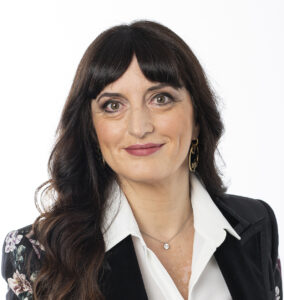Making Decisions – From Software Architecture Theory to Practice
(March 15th, 9:30 -10:30 CET)

Speaker: Paris Avgeriou, Professor, University of Groningen, the Netherlands
Bio: Dr. Paris Avgeriou is a Professor of Software Engineering at the University of Groningen, the Netherlands. He is the Editor in Chief of the Journal of Systems and Software, as well as an Associate Editor for IEEE Software. He is vice-chair of the Dutch National Association for Software Engineering (VERSEN) and sits on the board of the Dutch research school IPA. He has co-organized several international conferences such as ECSA, ICSA, and Tech Debt, and served on their steering committees. His research interests lie in the area of software architecture, with a strong emphasis on architecture modeling, knowledge, evolution, analytics, and technical debt. He champions the evidence-based paradigm in Software Engineering research and works towards closing the gap between industry and academia.
Abstract: Around the mid 2000’s we had a ‘lightbulb moment’: architecting is more about making design decisions than drawing boxes and lines with UML or Architecture Description Languages. The enthusiasm of shifting the architecting paradigm was followed by a frenzy of research work in ontologies, methods and tools to harness Architecture Knowledge and empower architects in their decision making. Are we there yet? In this talk, I will revisit the state of the art and give my personal account on what worked, what failed, and how to move forward, especially in order to actually impact industry practice.
The impact of AI and Edge Computing on Enterprise Architecture: a perspective from the field
(March 16th, 9:00 -10:30 CET)

Speaker: Tatiana Rizzante, Chief Executive Officer, Reply
Bio: Tatiana Rizzante is the CEO of Reply and serves on its Board of Directors. Tatiana is one of the founding members of Reply. In Reply’s early years, she handled the creation and development of competencies in the most innovative technology fields, such as value-added services for telcos, new media and new digital channels. Over the years, Tatiana’s role has grown to cover ever-increasing responsibilities within the Group, now assuming direct responsibility for various lines of business. In 2006, as a result of her vast experience in Innovation Management, she was made Chief Executive Officer, becoming responsible for the full range of services offered by the Group and for building the Reply presence in Europe, US, Brazil and China. Before joining Reply, she worked for CSELT (today Tlab) where she carried out testing and research on technologies and Internet services to the public. Since February 2020, Tatiana has held the position of independent council member at GEDI Gruppo Editoriale S.p.a. and in April 2022 she was made independent council member at Borsa Italiana. Tatiana earned a master’s degree in Computer Engineering from the Polytechnic University of Turin.
Abstract: Edge Computing and the continuous flooding of Internet standards into the “physical world” are changing the way each (software) product is designed and built. Artificial Intelligence (AI) is adding additional fuel to this shift. Every new product and enterprise software project is already today encompassing some degree of AI usage. In addition, we are starting to adopt AI to change the way we work in building software systems. The keynote will focus on highlighting the main challenges we are facing today in architecting software systems and designing new products that leverage AI and Edge Computing. It will also highlight some of our choices and outline the most urgent questions from enterprise customers.
Why Software Architecture is of Critical Significance Now More Than Ever
(March 17th, 15:00 -16:30 CET)

Speaker: Bran Selic, President, Malina Software Corp
Bio: Bran Selić is the President of Malina Software Corp., a Canadian company that provides consulting services to corporate clients and government institutions worldwide. He is also an Adjunct Professor of Software Engineering at Monash University in Melbourne, Australia. Bran has more than 50 years of practical experience involving the design and realization of large-scale industrial software systems, primarily in the cyber-physical space. In the course of his professional work, Bran has pioneered the development and application of advanced model-based software engineering methods and related technologies, as well as leading the definition of several related international standards. In recognition of his contributions to software engineering, in 2022 he was awarded an Honorary Doctorate by Malardalen University in Sweden.
[The interrupt] was a great invention … and then all hell broke loose. — Edsger Dijkstra [EWD1303]
Abstract: There is a widespread perception among practitioners that software architecture is a solved problem. Common architectural design patterns are well known and well documented. However, as we enter the era of ever more complex “smart” highly-interactive software systems, a new set of design problems is emerging, many of which require radical new approaches to software architecture. In this talk, we first identify the primary new challenges facing system designers in this brave new world – their sources and their unique characteristics. Next, we examine why software architecture plays such a decisive role in dealing with them. Based on that, we conclude with an outline of necessary new research directions.
